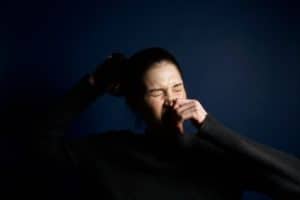What Causes Seasonal Allergies?
Seasonal allergies, also known as hay fever or allergic rhinitis, affect millions of people, causing discomfort and disrupting daily activities. We understand how these...
Posted on November 30, 2018
AllergyAbout one in five people in Exton experiences allergies. In addition to the usual symptoms – itchy, watery eyes; runny nose; nasal congestion; cough; sore throat; and post-nasal drip, you might also experience another side effect: temporary hearing loss.

To understand how allergies affect your hearing, let’s start with the basics. Allergies are an exaggerated immune system response to a substance your body perceives as a threat. Chemicals known as histamines are released into the bloodstream as a defense mechanism; these can cause swelling, inflammation, itchiness, and excess mucus production.
Side effects aren’t just confined to the nasal passages. Allergies can affect the outer, middle, and inner ear, causing symptoms such as itchiness, ear infections, pressure/fullness in the ear, dizziness, tinnitus, and hearing loss.
The most common allergen triggers are pollen, animal dander, environmental irritants, mold, dust mites, chemicals, medications, and foods.
The outer ear is most prone to skin allergies caused by contact with pollens, bug bites, or metals such as nickel. Swelling in the ear canal can block sound from entering the ears, leading to temporary hearing loss.
The Eustachian tubes in the middle ear, organs responsible for equalizing pressure in the ears, can become swollen as a result of mucus buildup caused by allergies. This can lead to plugged ears and otitis media, the medical term for an ear infection. Left untreated, middle ear infections can cause permanent hearing loss.
Meniere’s disease and other disorders of the inner ear can flare up as a result of allergic reactions, leading to a worsening of symptoms.
The best way to prevent allergic reactions is to avoid the allergen responsible for your symptoms, but this is easier said than done. In lieu of isolating yourself indoors, your Exton ENT specialist recommends home remedies to relieve pain. Over-the-counter medications such as Tylenol, Advil, and Motrin – used in conjunction with eardrops – should help. Try placing a warm compress, such as a washcloth, over the ear, as well. Get plenty of rest to give your body a chance to fight off the infection. If treatment is ineffective and allergy symptoms persist or recur frequently, your doctor might recommend immunotherapy, a fancy word for allergy shots.
If you or a loved one are suffering from hearing loss or ear pain related to allergies, schedule an appointment with your Exton ear, nose, and throat doctor today.
Seasonal allergies, also known as hay fever or allergic rhinitis, affect millions of people, causing discomfort and disrupting daily activities. We understand how these...
Could Honey Cure Your Allergies? In Lubbock, Texas, Cal Brints, a local honey producer, thinks local raw honey is the bee’s knees as a treatment...
April 22nd is Earth Day, part of a worldwide movement to focus on and care for our environment. As you celebrate Earth Day by...
Does cold winter weather have you hunkering down at home in hibernation mode? If so, you’re probably tempted to turn the thermostat way up,...